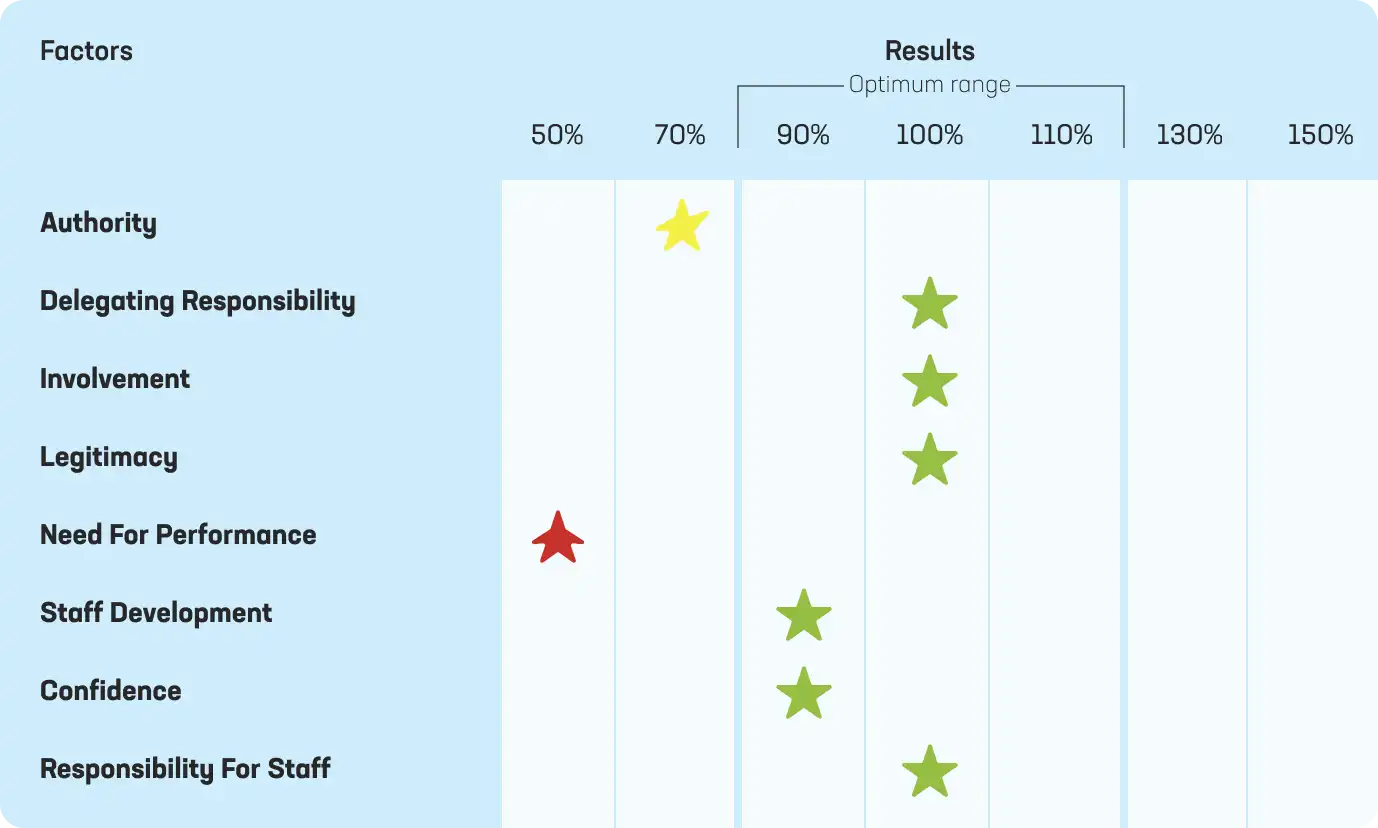DNLA Management Potential

The DNLA Management Potential identifies areas in which individuals deviate from the highest leadership standards across 25 important leadership factors.
These factors are divided into three categories. These are Leadership Qualities, Cooperation and Consensus, and an Entrepreneurial Spirit.
By comparing the data sets, it is possible to demonstrate the differences between desirable leadership traits and each individual's real potential. This provides participants with an understanding of where their leadership potential is greatest and where they will need to put in more effort in the future in order to become even more effective leaders.
We support you with a comprehensive participant development plan to assist you in developing high-quality leadership, boosting your effectiveness and minimizing internal friction/conflicts caused by misguided or ineffective approaches to people management.
What are we measuring?
The DNLA Management Potential measures the following competencies:
Leadership Qualities- Authority
- Delegating Responsibility
- Involvement
- Legitimacy
- Need For Performance
- Staff Development
- Confidence
- Responsibility For Staff
- Influence
- Identification
- Image
- Communication Skills
- Conflict Behavior
- Building Consensus
- Cooperation
- Handling Power
- People Orientation
- Team Work
- Personal Standards
- Information Handling
- Readiness to Make Decisions
- Innovation
- Quality Awareness
- Risk Behavior
- Systematic Approach
What reports do we provide?
After the measurement procedure, we can provide the following reports:- Employee Evaluation
- Company Evaluation
- Coaching Plan
- Development Plan
- Certificate
Field of application:
The DNLA system generates high-quality reports on an individual that can be used for the following purposes:- When recruiting new managers
- Succession planning
- Individual development of your talents
- Personal development coaching
- As a basis for aligning development cooperation objectives among different levels of leaders in the organization
- To help identify the causes and address the challenges of underperforming management teams

 041 231 831
041 231 831 info@resultant.si
info@resultant.si